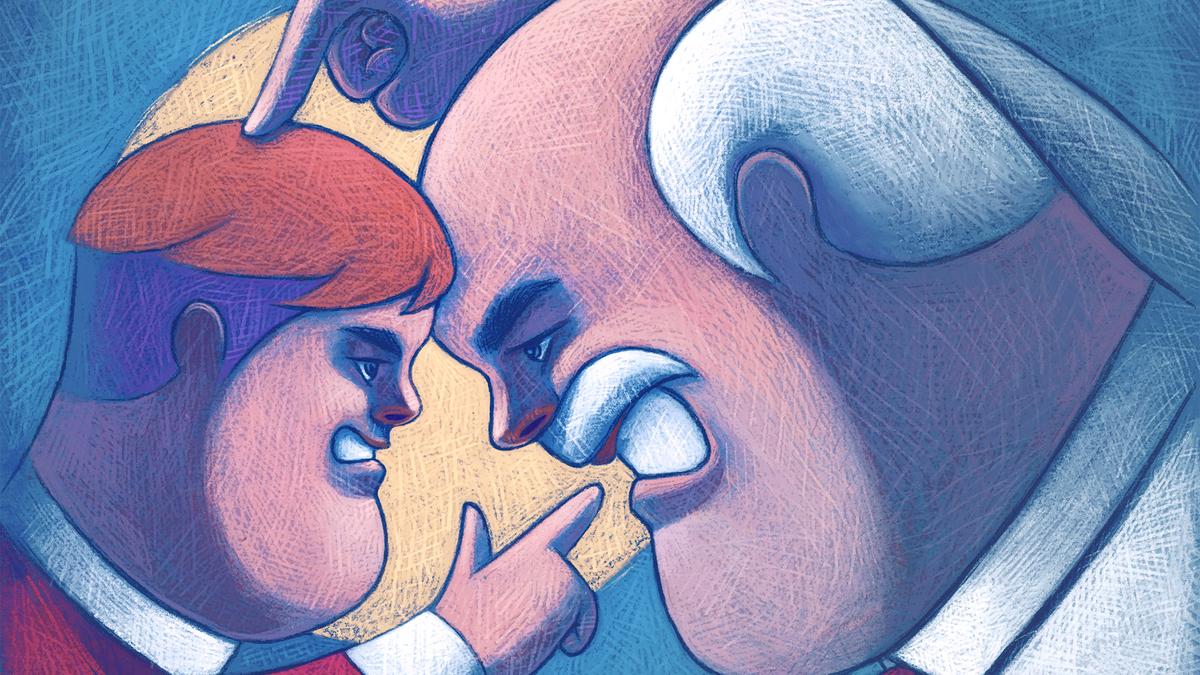
Arguments, whether loud or silent, often lead to something more painful. They build invisible psychological walls between people.
| Photo Credit: Getty Images/Istockphoto
It happens every day. Teenagers rebel against their parents. Employees clash with their bosses. Spouses argue over matters both silly and deeply personal. In each case, both parties passionately defend their version of right. The teenager insists they’re asserting independence while the parent claims they’re being protective. The boss upholds discipline whereas the employee seeks understanding. Each side stands convinced that the fault lies elsewhere, seldom stopping to imagine the inner world of the other.
But what if we paused and asked “If I were you… would I have reacted any differently?” This simple question is not just a phrase, it’s a mindset, a quiet shift that can prevent friction, heal rifts, and soften hearts. It’s the missing link in most strained relationships.
Arguments, whether loud or silent, often lead to something more painful. They build invisible psychological walls between people. With every unresolved disagreement, these walls grow taller and thicker. At some point, love, friendship, or even basic humanity begins to fade behind them. These walls are not built by hatred, but by misunderstanding. And they are strengthened by ego, the sure-shot belief that I am right and you are wrong. But in most human interactions, there’s no absolute right or wrong. There are just perceptions formed by personal experiences, fears, and emotions. And that’s where the power of “If I were you” comes in. It doesn’t dissolve disagreement. It simply dissolves hostility.
We’ve all heard the proverb “A stitch in time saves nine”. In relationships, that timely stitch is often a pause, a brief silence in the heat of an argument. If just one person, in any conflict, could stop and silently ask, “What would I have done if I were in their place?” the whole storm could shift. The intensity would drop. What seemed like a war moments ago would become a moment of understanding. This isn’t a weakness. It’s emotional maturity, the kind that restores trust, breaks the wall, and clears the sky.
I learned this lesson not from theory, but from life. As a young man, I often found my mother’s excessive worry inexplicable. If I stayed out late, she would wait near the window, anxious and restless, refusing to sleep or eat until I returned. I used to think, “Why does she overthink so much?” But years later, when my own children began travelling for college trips and vacations, I felt a quiet unease that I couldn’t rationalise. Despite live locations, constant updates, and mobile connectivity, I felt the same fear she once did. And then it struck me, she wasn’t over worried, She was loving, deeply and silently. If I had stepped into her shoes back then, I would have seen her anxiety not as a flaw but as an expression of care.
That’s what “If I Were You” does: it reveals love hidden behind worry, pain hidden behind silence, and truth buried beneath misunderstanding.
Whenever I counsel someone facing dilemmas, personal, emotional, or professional, I make it a habit to momentarily live their story. What are they afraid of? What are they not saying? What does the world look like from where they stand? By doing this, I’m not just offering advice, I’m offering resonance. I can guide them toward clarity. “If I were you…” always works.
In today’s hyper-connected but emotionally fragmented world, we need more people ready to offer a little bit of empathy, it may not be a grand act but it is powerful. A whisper to oneself in the middle of a conflict: “If I were you…” It may not solve every problem. But it will stop many wounds from deepening. It will make our relationships kinder, our conflicts gentler, and our homes and workplaces emotionally safer. And above all, it will make us more human.
As author Harper Lee puts it in To Kill a Mockingbird, “You never really understand a person until you consider things from his point of view… Until you climb inside of his skin and walk around in it.”
Published – August 24, 2025 04:44 am IST
